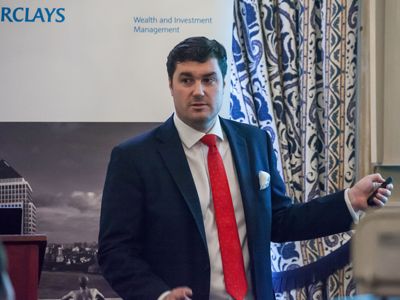

Finding ways to manage emotional discomfort is the key to making better investment decisions; according to Greg B Davies, Head of Behavioural & Quantitative Investment Philosophy for Barclays Wealth and Investment Management.
Finding ways to manage emotional discomfort is the key to making better investment decisions; according to Greg B Davies, Head of Behavioural & Quantitative Investment Philosophy for Barclays Wealth and Investment Management.
Speaking at a Barclays Wealth and Investment Management seminar in Jersey, Dr Davies discussed the bank’s unique use of behavioural finance to understand each investor's approach to investment decision making and how it is possible to utilise the insights gained when investing on behalf of someone else or an institution.
The seminar was interactive and members of the audience had the opportunity to give their views and answer questions via keypads on the investment experience and their answers were analysed during the session.
Dr Davies discussed the use of financial framing using the Müller-Lyer illusion, devised in 1889, as an example of how visual perception can be distorted by framing and compared this to the investors’ decision-making process.
He went on to explain the difference between the intuitive emotional brain and the deliberative brain and how the former can have an adverse effect on the financial decisions investors make. Developing an investment framework for an investor means they are not making every investment decision from scratch, there is a process to follow and this limits the number of decisions made based on emotions.
Dr Davies noted that classical finance would say that returns were most important to investors but behavioural finance believes the investment journey plays a large role in achieving these returns and affects the investor’s future investment decisions.
“The guiding principles of good investing have been known for decades but evidence suggests that most investors do considerably worse than they should and much of this is down to our need as human beings to be emotionally comfortable,” said Dr Davies.
“Our emotionally driven investment decisions are estimated to cost the average investor around 2–3% per year in foregone returns. The key is to manage the cost of emotional comfort over the course of the investment journey.”
The seminar, Behavioural Finance: Overcoming the cost of being human, took place at the Pomme D’Or Hotel in Jersey on Wednesday 25 September.
For more information please visit http://www.investmentphilosophy.com/